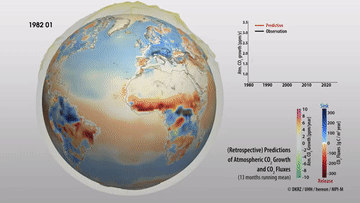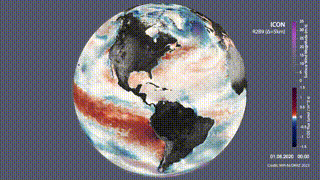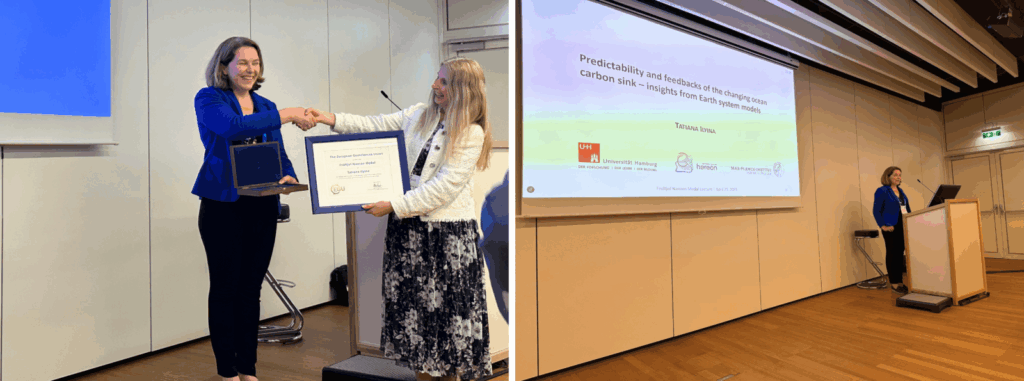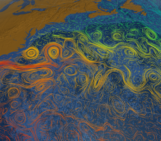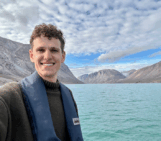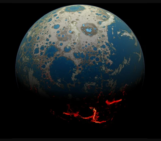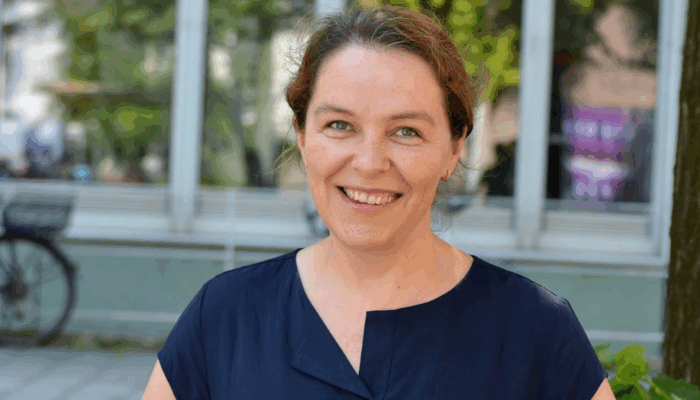
Tatiana Ilyina received the Fridtjof Nansen Medal from the European Geosciences Union (EGU) for her outstanding research in oceanography. We spoke with her about her career path and the work that led to this award. Here’s what you should know about her.
Tatiana Ilyina studied Meteorology/Oceanography during her PhD at the University of Hamburg, continued as a postdoc at the University of Hawaii and returned to Hamburg as a Group Leader of the Ocean Biogeochemistry Group at the MPI for Meteorology. She is currently a professor at the University of Hamburg’s Cluster of Excellence “Climate, Climatic Change, and Society” (CLICCS), leads a department at Helmholtz-Zentrum Hereon, and a group at the Max Planck Institute for Meteorology. Her significant contributions to ocean science involve innovating ocean carbon cycle predictability and unraveling ocean biogeochemical cycles and their feedbacks by developing and using Earth System Models to advance our understanding of the ocean carbon cycle and its vital role in the climate system.
🌊 Can you share your career journey with us? Did you always dream of becoming an oceanographer, and what inspired you to pursue this path?
- As a child, I watched Jacques Cousteau’s documentaries. Despite their dated look and not understanding all the details, Cousteau’s passion and enthusiasm in his storytelling made it impossible not to become excited about the ocean’s underwater world.
- As a little girl in Saint Petersburg, I saw a plaque built into a wall far above my head. My mother told me that it marks a past flood’s water level – over 4 meters! I recall feeling a mix of emotions seeing the plaque high above me—fear at imagining everything submerged and awe at the immense force of water. Learning about the flood’s causes later made me very curious about the ocean.
- In school, I was drawn to physics more than to other subjects because of the consistency and unchanging nature of physical laws, unlike other subjects where interpretations and perspectives can change.
- During my first semester at the University, I learned about coupling the general circulation models of the ocean and atmosphere. Learning about coupled models is what set the direction into the modeling world for me. Since then there was no way back!
- I studied Meteorology and switched to Oceanography. My PhD advisor resolved my worries about switching disciplines by noting that the equations are the same as in Meteorology, just the vertical axis is reversed.
🌊 Could you describe the research that led to you receiving this award?
Specifically, I am interested in understanding how variability and predictability of the carbon cycle are maintained by the ocean. Changes in CO2 emissions have no immediate effect and are difficult to monitor. They will remain unmeasurable for a few decades in global temperature due to internal climate variability. Climate variability can strengthen or weaken decadal trends in the ocean carbon sink. The question I am addressing in this regard is: In the presence of chaotic variability in the climate system that affects the strength of the carbon sinks, can we predict if atmospheric CO2 changes faster or slower than expected from changes in emissions alone? We address this question by assimilating atmospheric and oceanic observations, enabling ESMs to capture not only the overall trend set by the responses to external forcings (e.g. CO2 emissions) but also the mode and the timing of internal climate variability (e.g. El-Niño). With these predictions, we contribute to the annual updates of the Global Carbon Budget and are now building the contribution for the WMO Lead Centre for Annual-to-Decadal Climate Prediction.
Together with my research group, I use models as the main tool to test our ideas and hypotheses. I love developing models to represent the complexity of marine biogeochemical processes in the Earth system and advocate for ESM configurations with interactive carbon cycle. My modeling efforts have focused on the development of the HAMburg Ocean Carbon Cycle (HAMOCC) model as an interactive component of ESMs. With a plethora of processes that are missing in the model, my philosophy has been to prioritize those model developments that can address crucial knowledge gaps and bring novel insights on the complex responses of storage of carbon in the ocean to climate change. I was fortunate to attract motivated talented group members (many of them are attending EGU) and meet supportive collaborators. Being involved in the activities of the World Climate Research Programme (WCRP) has been helpful in attracting visibility to these research topics and building professional networks.
🌊 What are some of the biggest challenges you have faced in your research?
Also as for many women in academia, having to cope with gender inequality in the academic climate becomes a constant companion in working life. Luckily, awareness of unconscious biases is growing, and institutions are implementing measures for diverse, equal, and inclusive environments, which are crucial for fair research careers.
What helps me to face challenges is that I have always been passionate about modeling the ocean carbon cycle, no matter what. Also coming home to my kids’ loving faces gives me strength.
🌊 What do you see as the primary gaps or overarching questions in ocean and climate science for the coming years, and how do you envision the field of oceanography evolving over the next years?
Earth system models have already become powerful tools to address knowledge gaps related to climate change. It is due to increasing computational power and an increasing number of crucial observations that breakthroughs in our understanding of how physical, biological, and chemical processes work in the ocean are enabled. As to modeling, increasing the spatial resolution of the models increases the accuracy of ocean process representation. However, the complexity of ocean biological processes and their feedback in the Earth system are still underrepresented to a large degree. Bringing together high resolution and complexity of biogeochemical processes should be the way forward in modeling the response of the ocean under global change.
I am convinced that including novel empirical biological observations in the new generation of ESMs resolving mesoscale and even sub-mesoscale processes in the ocean and atmosphere carries an incredible potential for transformative discoveries in oceanography.
🌊 What do you enjoy most about your work?
You learn something new every day. It is an adventure and a tremendous source of inspiration. While developing models and improving their performance is inspiring, I find weird model results educating. They tell what might be missing in our conceptual understanding of ocean biogeochemistry.
🌊 What advice would you give to young scientists who are just starting their careers in oceanography?
Thank you, Tatiana, for the interview and for sharing insights into your career and giving advice!
Read more:
Interviewed and edited by J. Behncke

